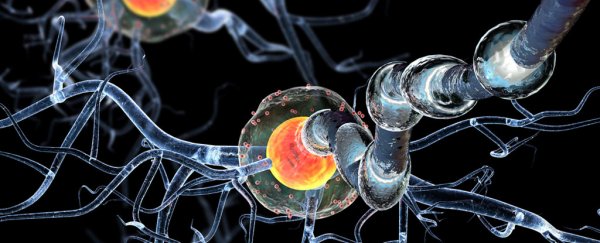For the first time ever, scientists have identified clusters of genes in the brain that are believed to be linked to human intelligence.
The two clusters, called M1 and M3, are networks each consisting of hundreds of individual genes, and are thought to influence our cognitive functions, including memory, attention, processing speed, and reasoning.
Most provocatively, the researchers who identified M1 and M3 say that these clusters are probably under the control of master switches that regulate how the gene networks function. If this hypothesis is correct and scientists can indeed find these switches, we might even be able to manipulate our genetic intelligence and boost our cognitive capabilities.
"We know that genetics plays a major role in intelligence but until now haven't known which genes are relevant," said neurologist Michael Johnson, at Imperial College London in the UK. "This research highlights some of the genes involved in human intelligence, and how they interact with each other."
The researchers made their discovery by examining the brains of patients who had undergone neurosurgery for the treatment of epilepsy. They analysed thousands of genes expressed in the brain and combined the findings with two sets of data: genetic information from healthy people who had performed IQ tests, and from people with neurological disorders and intellectual disability.
Comparing the results, the researchers discovered that some of the genes that influence human intelligence in healthy people can also cause significant neurological problems if they end up mutating.
"Traits such as intelligence are governed by large groups of genes working together – like a football team made up of players in different positions," said Johnson. "We used computer analysis to identify the genes in the human brain that work together to influence our cognitive ability to make new memories or sensible decisions when faced with lots of complex information. We found that some of these genes overlap with those that cause severe childhood onset epilepsy or intellectual disability."
The research, which is reported in Nature Neuroscience, is at an early stage, but the authors believe their analysis could have a significant impact – not only on how we understand and treat brain diseases, but one day perhaps altering brainpower itself.
"Eventually, we hope that this sort of analysis will provide new insights into better treatments for neurodevelopmental diseases such as epilepsy, and ameliorate or treat the cognitive impairments associated with these devastating diseases," said Johnson. "Our research suggests that it might be possible to work with these genes to modify intelligence, but that is only a theoretical possibility at the moment – we have just taken a first step along that road."
